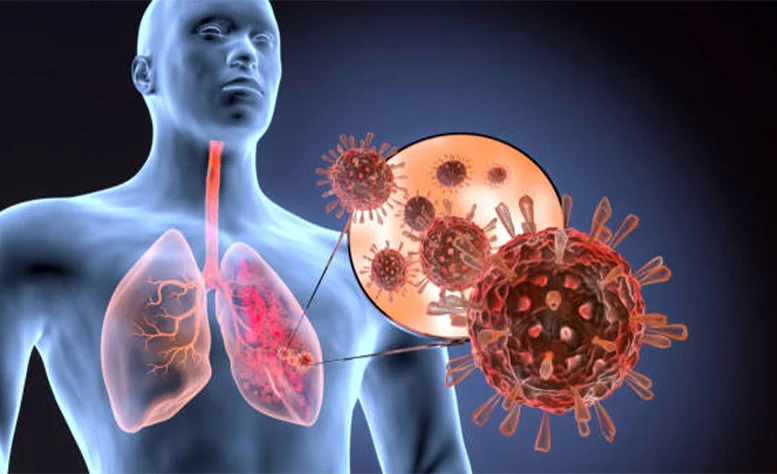Severe Respiratory Distress

Understanding Severe Respiratory Distress
Severe respiratory distress occurs when the lungs cannot supply enough oxygen to the blood or remove carbon dioxide effectively, leading to difficulty breathing and low oxygen levels. It can result from various conditions, including Acute Respiratory Distress Syndrome (ARDS), severe pneumonia, COPD exacerbation, or trauma to the chest. Immediate medical attention is critical to prevent life-threatening complications.
At Siddhivinayak Hospital, we specialize in providing cutting-edge care for severe respiratory distress. Our multidisciplinary team of pulmonologists, intensivists, and respiratory therapists works together to stabilize patients, address the underlying cause, and restore normal breathing.
Common Causes of Severe Respiratory Distress
- Acute Respiratory Distress Syndrome (ARDS): A life-threatening condition where fluid builds up in the lungs due to infection, trauma, or inhalation of harmful substances.
- Severe Pneumonia: Infection in the lungs causing inflammation and difficulty breathing.
- Chronic Obstructive Pulmonary Disease (COPD) Exacerbation: Worsening of symptoms in COPD patients due to infections or environmental factors.
- Lung Trauma: Injuries to the chest or lungs, such as rib fractures or lung contusions.
- Pulmonary Embolism: A blood clot in the lungs that blocks oxygen flow.
- Sepsis or Shock: A systemic infection that can impair lung function.
- Asthma Attack: Severe, uncontrolled asthma can lead to respiratory distress if not treated promptly.
Symptoms of Severe Respiratory Distress
- Shortness of breath or rapid, shallow breathing
- Low oxygen levels (hypoxia), often resulting in bluish discoloration of lips or nails
- Chest pain or tightness
- Rapid heart rate and fatigue
- Confusion or altered mental state
- In severe cases, unconsciousness or inability to breathe independently
If you or a loved one experiences these symptoms, it’s critical to seek emergency medical care immediately.
Our Approach to Treating Severe Respiratory Distress
At Siddhivinayak Hospital, we follow a comprehensive approach to treat severe respiratory distress, focusing on stabilizing the patient, addressing the underlying cause, and supporting long-term recovery.
1. Rapid Stabilization
Our emergency response team provides immediate care to stabilize breathing and oxygen levels, including:
- Oxygen Therapy: Delivering high concentrations of oxygen via masks or nasal cannulas to improve oxygenation.
- Mechanical Ventilation: For patients unable to breathe independently, we use advanced ventilators to support breathing.
- Non-invasive Ventilation (NIV): In cases of moderate distress, we use techniques like CPAP (Continuous Positive Airway Pressure) or BiPAP (Bilevel Positive Airway Pressure) to assist breathing without invasive procedures.
2. Advanced Diagnostic Tools
To identify the underlying cause, we use:
- Chest X-rays and CT scans to detect infections, fluid accumulation, or injuries.
- Blood gas analysis to measure oxygen and carbon dioxide levels in the blood.
- Lung function tests to assess the severity of respiratory compromise.
- Ultrasound or echocardiography to evaluate cardiac and pulmonary interactions.
3. Targeted Medical Treatments
Our specialists tailor treatments to address the specific cause of respiratory distress:
- Medications:
- Antibiotics for infections like pneumonia.
- Bronchodilators and steroids for asthma or COPD exacerbation.
- Anticoagulants for pulmonary embolism.
- Fluid Management: Carefully balancing fluid intake to prevent lung overload in ARDS or heart failure.
- Sedation and Paralysis (if needed): In severe cases, we use sedatives and neuromuscular blockers to optimize mechanical ventilation and minimize lung strain.
4. Specialized Therapies for ARDS
For patients with ARDS, we offer advanced therapies, including:
- High-frequency Oscillatory Ventilation (HFOV): To provide effective oxygenation with minimal lung injury.
- Prone Positioning: Placing patients face down to improve oxygenation by redistributing lung pressure.
- Extracorporeal Membrane Oxygenation (ECMO): A life-saving technique where blood is oxygenated outside the body and returned to circulation, used in the most critical cases.
5. Continuous Monitoring and Support
Patients in severe respiratory distress are closely monitored in our Intensive Care Unit (ICU), equipped with advanced monitoring systems for:
- Oxygen saturation and ventilatory parameters
- Heart rate, blood pressure, and other vital signs
- Regular imaging and lab tests to track progress
6. Long-term Recovery and Rehabilitation
Once the acute phase is managed, we support patients in regaining lung function and strength through:
- Pulmonary Rehabilitation: A customized program including breathing exercises, physical therapy, and nutritional guidance.
- Follow-up Care: Regular check-ups to monitor recovery and prevent complications.
Why Choose Siddhivinayak Hospital for Severe Respiratory Distress?
- Expert Multidisciplinary Team: Our team of pulmonologists, intensivists, and respiratory therapists is skilled in managing complex respiratory conditions.
- Advanced ICU Facilities: Equipped with the latest ventilators, ECMO systems, and diagnostic tools, ensuring the highest level of care.
- 24/7 Emergency Services: Our emergency team is always ready to provide immediate, life-saving interventions.
- Patient-Centered Care: We prioritize patient comfort and safety, providing compassionate care tailored to individual needs.
- Proven Track Record: Our high success rate in managing severe respiratory conditions is a testament to our expertise and dedication.
Preventing Severe Respiratory Distress
Prevention is key to reducing the risk of respiratory distress:
- Manage chronic conditions like COPD and asthma with regular check-ups and medications.
- Avoid exposure to pollutants, allergens, and smoke.
- Stay up-to-date with vaccinations for pneumonia and influenza.
- Seek early treatment for respiratory infections or persistent breathing difficulties.
Take Control of Your Respiratory Health
Severe respiratory distress can be life-threatening, but timely and expert care can save lives and restore health. At Siddhivinayak Hospital, we are dedicated to providing advanced treatment and compassionate support to help you or your loved one breathe freely again.
Schedule Your Consultation
If you or someone you know is at risk or experiencing symptoms of severe respiratory distress, contact Siddhivinayak Hospital today. Our specialists are here to provide life-saving care and help you regain your health and peace of mind.

